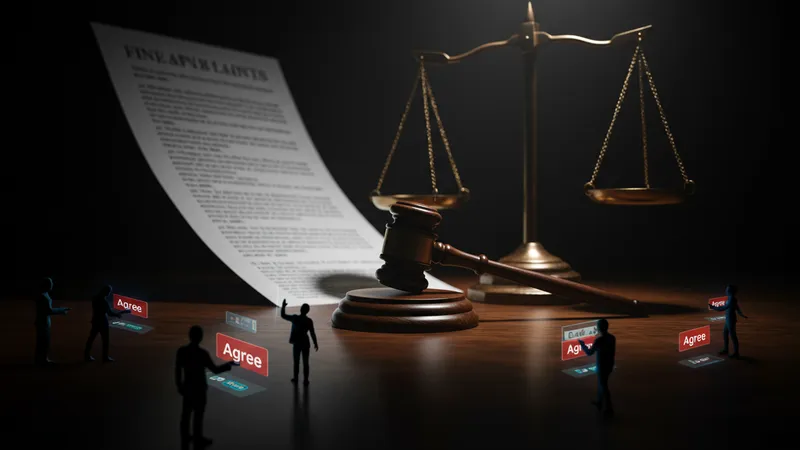
Protecting Your Rights, Every Hour
Why Arbitration Clauses Are Quietly Eroding Consumer Rights
Arbitration clauses—innocuous or insidious? At first glance, they seem merely procedural, a tiny footnote in a vast sea of legalese. But these clauses hide a secret: they waive your right to take disputes to court. Instead, disagreements must be settled in private arbitration, where outcomes can be tilted unfavorably against the consumer.

Recent headlines have brought attention to the disparities in arbitration processes, highlighting cases where consumers faced biased judgments due to the private nature of proceedings. This isn’t just legal mumbo-jumbo—arbitration can force you into a system that lacks transparency and often lacks fair representation as well. It’s like signing away the scales of justice unknowingly with every ‘Agree’ button pressed.
But there’s an even bigger picture to consider. Corporations have used arbitration clauses to quash collective legal actions, which means eliminating the ability for consumers to band together for accountability. In essence, individual voices are drowned in a sea of corporate control, with little room for recourse or recompense.
What if arbitration was designed to dissuade legal action by creating what seems an insurmountable barrier to justice? It’s a strategic maneuver that raises important questions about safeguarding consumer rights in the future. Are arbitration clauses forcing us into a silent submission, or is there a way to reclaim the power stolen away one click at a time? Stay tuned as we unravel this complex and worrying trend.